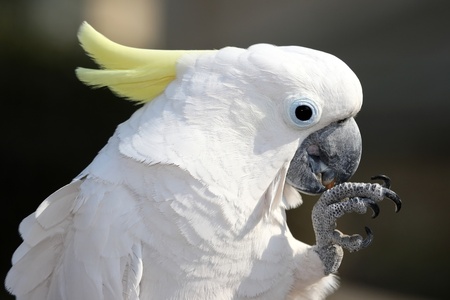How to Maintain Your Bird’s Beak Health
July 28, 2017
One thing bird owners must always consider regarding their pet’s health is the state of the bird’s beak. However, while the beak is paramount to a bird’s overall health, many owners have a hard time assessing the state of their bird’s beak and knowing what to do when problems do arise. To get an idea of what to expect regarding beak health, bird owners must learn potential beak concerns and how to address problems before they escalate into something even more harmful. Whether it’s a parrot or a similar domesticated bird, any pet owner can be become equipped to properly estimate the state of their bird’s health and provide the best care possible.
Typical Beak Concerns
One of the most common concerns regarding a bird’s beak is luckily the least severe and easiest to care for—flaky beaks. While this can happen to any parrot, cockatoos and conures are more susceptible. Flaky beaks are usually the result of vitamin deficiencies, at which point pet owners would be wise to consult their veterinarian for recommendations regarding dietary changes or supplements to help heal the bird’s beak. Some other typical beak disorders found in domesticated birds include parrot beak and scissors beak—these are growth abnormalities, which can be amended only with surgery or prosthetics.
Another common beak concern is trauma resulting from crush wounds, punctures, avulsions, or fractures, frequently by other birds. These kinds of wounds need to be appropriately cleaned out, and antifungals, antibiotics, and even Manuka honey should be used as a precaution. Trauma could be severe enough that a good part of the bird’s beak becomes severely damaged. Luckily, acrylics can help repair the beak while new tissue grows.
As well, young birds are at risk of breaking the end of their beaks by landing awkwardly and hitting the tip. The beak then becomes very sore to the point that the bird won’t eat, but vets can cauterize the tip to stop any bleeding.
Keeping Beaks Healthy
Fortunately, for bird owners, maintaining beak health is not as difficult as it seems. For instance, pet owners can provide birds with natural, bird-safe wood perches, thereby helping encourage them to exercise their beak by chewing on the perches—as they naturally do on tree branches. Birds can also benefit from foods like unshelled whole nuts. Pecans, Brazil nuts, almonds, and walnuts have tough hulls but tasty centers, which inspires birds to break into them using their beaks. Try to not overdo it, however, since too much could lead to obesity.
Another way to help maintain beak health is by providing cuttlebones in a bird’s cage. Birds not only see cuttlebones as fun things to chew on, but cuttlebones also offer a healthy burst of calcium. This may be especially beneficial for reproductive-age hens because the extra calcium could prevent egg binding as well as other egg production problems.
Beak Trim
Some instances of overgrowth or similar beak abnormalities could require a beak trim. Since bird beaks are made of keratin and grow throughout their lives, occasional trims might be necessary if birds don’t properly file their beaks on cuttlebones, perches, or toys. For birds that may require beak trims, make a vet appointment immediately. A bird’s overgrown or abnormally shaped beak could affect its ability to eat, so watch the bird's food consumption until its vet appointment.
Copyright: fouroaks / 123RF Stock Photo


.jpg)



